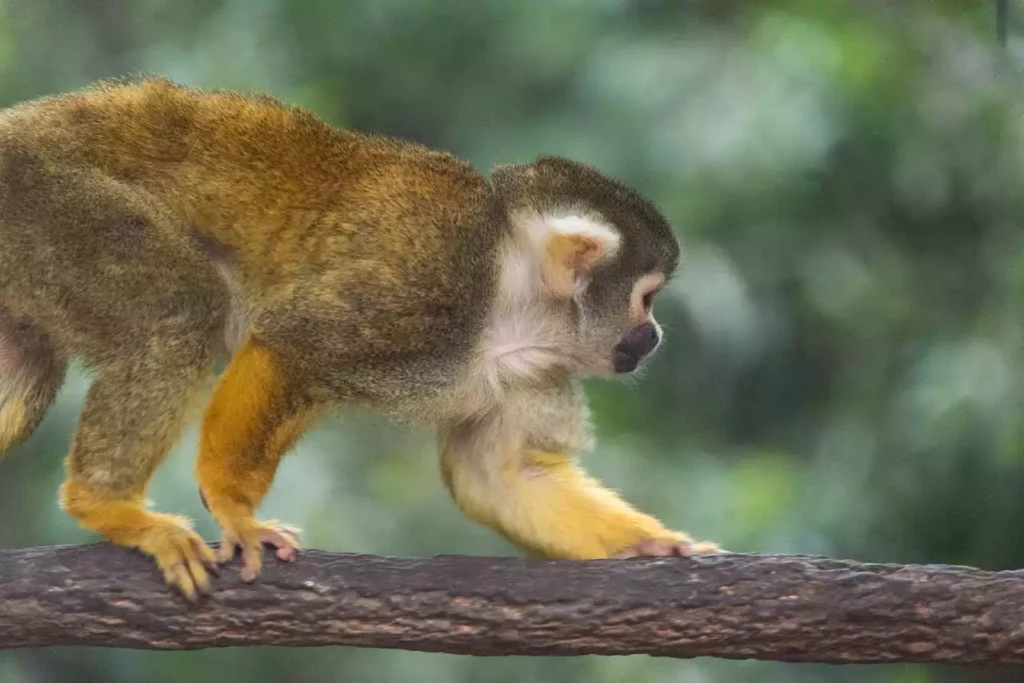
A monkey caused a power outage in Sri Lanka on February 9, 2025, resulting in widespread disruptions across the country. The unusual incident, where a monkey’s interaction with a transformer led to a cascading failure of the national power grid, has drawn significant attention. This event highlights the vulnerability of critical infrastructure to wildlife interference and raises questions about how animals can affect power systems. The outage caused millions to lose electricity, especially in urban centers like Colombo, where residents and businesses were severely impacted.
How the Monkey Caused the Power Outage
The incident began when the monkey, possibly in search of food or attracted to the transformer, made contact with the electrical equipment located near Colombo. This caused a short circuit, which triggered a domino effect across the power grid. Within minutes, large sections of Sri Lanka were plunged into darkness, including major cities like Colombo, Kandy, and Galle. Hospitals, schools, and businesses were immediately affected, as many rely on electricity for basic operations.
The situation was worsened by the lack of backup power for some essential services. As the grid slowly came back online, workers scrambled to address the damage caused by the unexpected power failure.
Disruptions Across Sri Lanka: A Nation Without Power
The monkey’s actions led to a large-scale power failure, with thousands of Sri Lankans left without electricity for several hours. Colombo, the capital city, was one of the hardest hit areas. Daily life came to a halt as businesses closed, transportation systems were interrupted, and hospitals struggled to keep critical operations running.
For tourists, the blackout added a layer of frustration to their visits, with many experiencing difficulties due to the lack of power in hotels, restaurants, and tourist sites. This event had significant implications for the economy, especially as businesses faced delays and losses in the hours it took to restore the national power grid.
The Growing Problem of Wildlife and Infrastructure
This incident is far from isolated. The issue of wildlife disrupting critical infrastructure is a growing concern globally. In Sri Lanka, where monkeys and other animals are commonly found in urban environments, this kind of interaction with power systems is becoming more frequent. Animals, particularly monkeys, are often seen near power lines, transformers, and substations. As cities expand and infrastructure grows, the likelihood of these animals coming into contact with sensitive equipment increases.
Globally, other countries have experienced similar issues, with squirrels, birds, and even rodents causing power outages. The challenge is particularly pressing in countries with rich biodiversity and limited resources for safeguarding electrical infrastructure.
Solutions and Preventive Measures to Avoid Future Outages
Following this unusual incident, Sri Lankan authorities have begun exploring ways to prevent further power outages caused by wildlife. One of the primary suggestions is installing physical barriers around transformers and substations. These barriers could prevent animals, particularly monkeys, from coming into direct contact with the electrical equipment.
In addition to physical barriers, technology could play a role in protecting the power grid from wildlife interference. Monitoring systems that detect the presence of animals near critical infrastructure could allow for quick responses and reduce the risk of power failures.
Additionally, public education and worker training are key factors in minimizing these disruptions. Awareness campaigns could inform residents about the dangers of wildlife near electrical systems, while energy companies can train staff to handle animal-related issues quickly.
Sri Lanka’s Challenges with Urban Expansion and Wildlife
The recent monkey-caused power outage in Sri Lanka brings to light the larger issue of urbanization and its impact on wildlife. As cities expand and infrastructure develops, wildlife is often pushed into closer proximity with human settlements. In Sri Lanka, this has led to increased interactions between animals and power systems, resulting in frequent disruptions.
The urban sprawl of cities like Colombo and Kandy is contributing to the rise of such incidents, as natural habitats are replaced with buildings and roads. This growing conflict between wildlife and urban infrastructure calls for better planning that considers both human and animal needs.
What Other Countries Are Doing to Prevent Wildlife-Related Power Failures
Sri Lanka is not the only country dealing with the impact of wildlife on power systems. Across the globe, animals have been responsible for significant power outages. In the United States, squirrels are notorious for causing disruptions by chewing through power lines. In the UK, birds often interfere with electrical infrastructure, particularly near airports and other busy facilities.
In response, energy companies worldwide have implemented measures to protect power grids from wildlife interference. Some solutions include rodent-proofing electrical equipment, installing bird deterrents, and using fences around substations. By adopting similar solutions, Sri Lanka can work to minimize future incidents like the monkey-caused power outage.
Understanding the Impact of Wildlife on Power Systems
The monkey’s role in causing the power outage in Sri Lanka is a reminder of the growing challenge posed by wildlife interference with critical infrastructure. This event, while rare, highlights the need for countries to take proactive steps in protecting their power grids from similar disruptions.
As Sri Lanka works to improve its infrastructure and safeguard against wildlife-related issues, it is clear that innovative solutions will be necessary. By learning from other countries’ experiences and investing in preventative measures, Sri Lanka can reduce the risk of future power outages caused by animals.